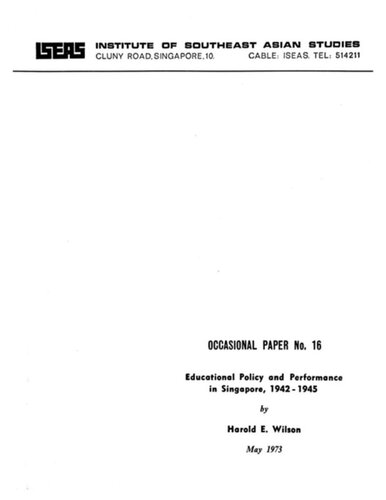

Most ebook files are in PDF format, so you can easily read them using various software such as Foxit Reader or directly on the Google Chrome browser.
Some ebook files are released by publishers in other formats such as .awz, .mobi, .epub, .fb2, etc. You may need to install specific software to read these formats on mobile/PC, such as Calibre.
Please read the tutorial at this link: https://ebookbell.com/faq
We offer FREE conversion to the popular formats you request; however, this may take some time. Therefore, right after payment, please email us, and we will try to provide the service as quickly as possible.
For some exceptional file formats or broken links (if any), please refrain from opening any disputes. Instead, email us first, and we will try to assist within a maximum of 6 hours.
EbookBell Team

5.0
60 reviewsEducation in Singapore during the period of the Japanese Occupation (February 1942 - September 1945) cannot be usefully considered in isolation from the broader context of its times, nor without relating it to the system of education which had evolved up to the time of the invasion. The British colonial system is relevant in so far as it had imprinted certain habits of thought upon those who had experienced it, and had created a self-perpetuating momentum which, try as they might, the Japanese could not entirely reverse. Nevertheless, for some young people of the island, school became the point of intellectual contact with the ideology of their new ulers, the 'pivotal institution' for a novel process of cultural indoctrination. The purpose of this paper is to consider Japanese educational policy, the factor militating against its full implementation, and the extent to which the system that emerged served as an agent for change.